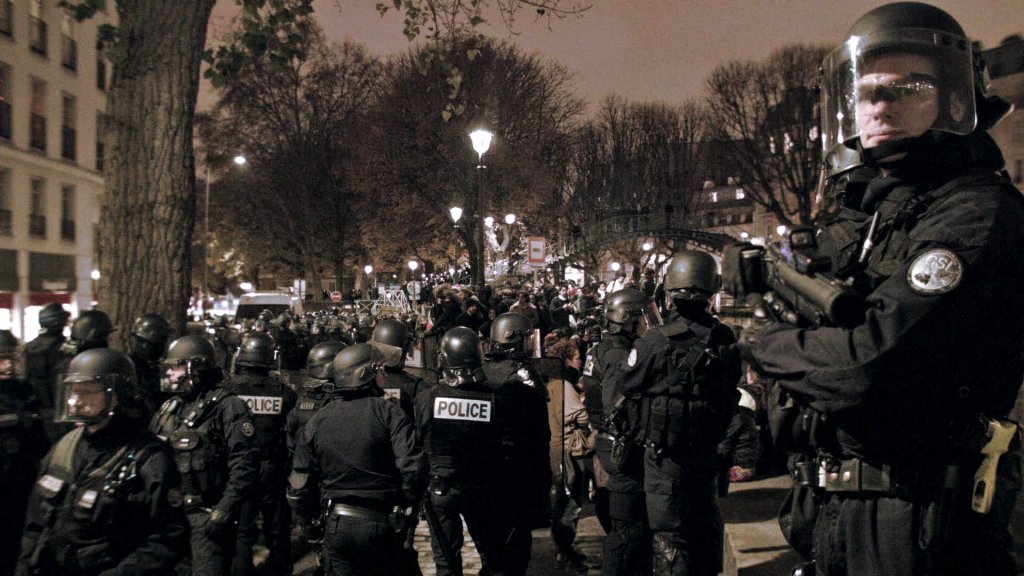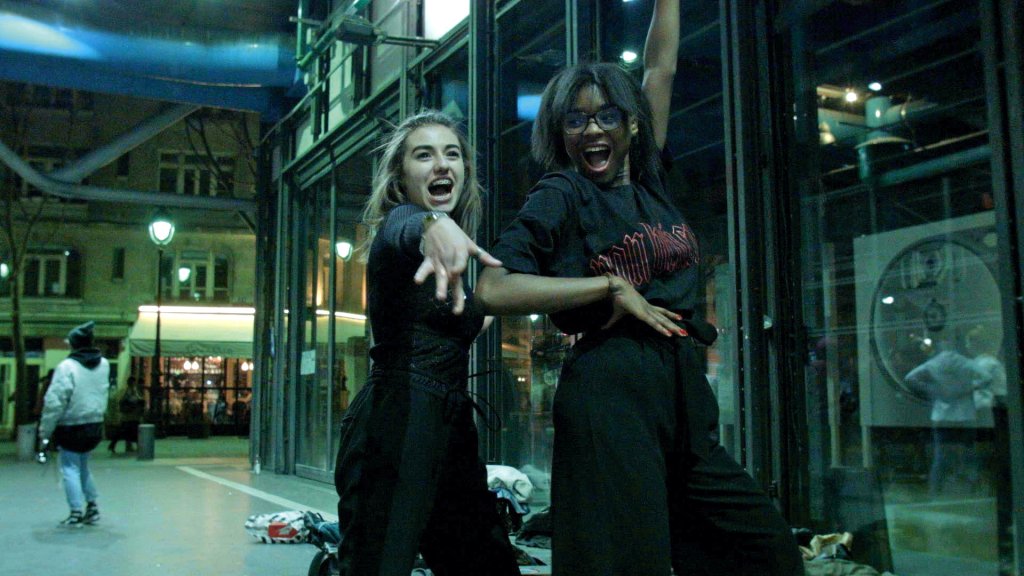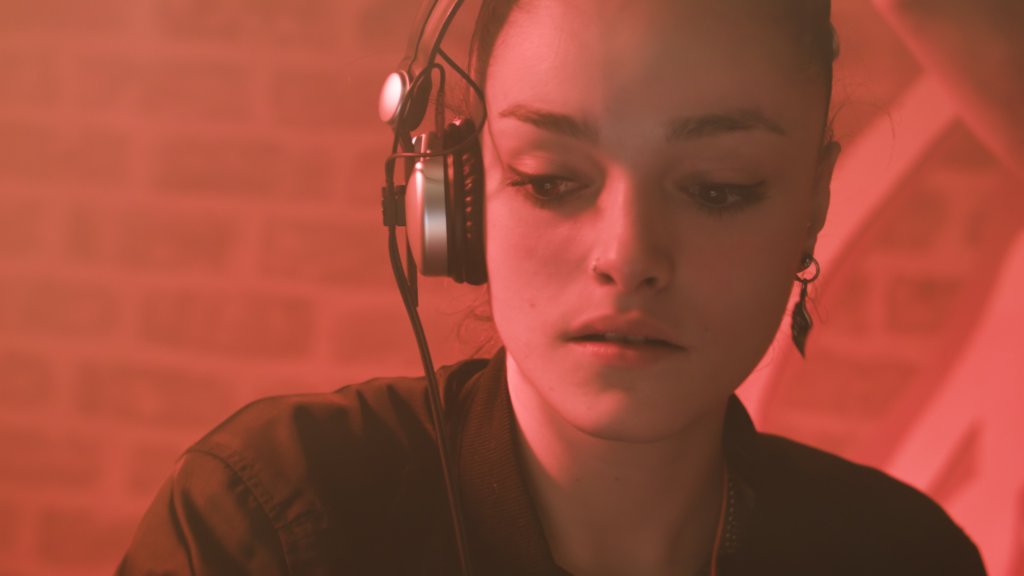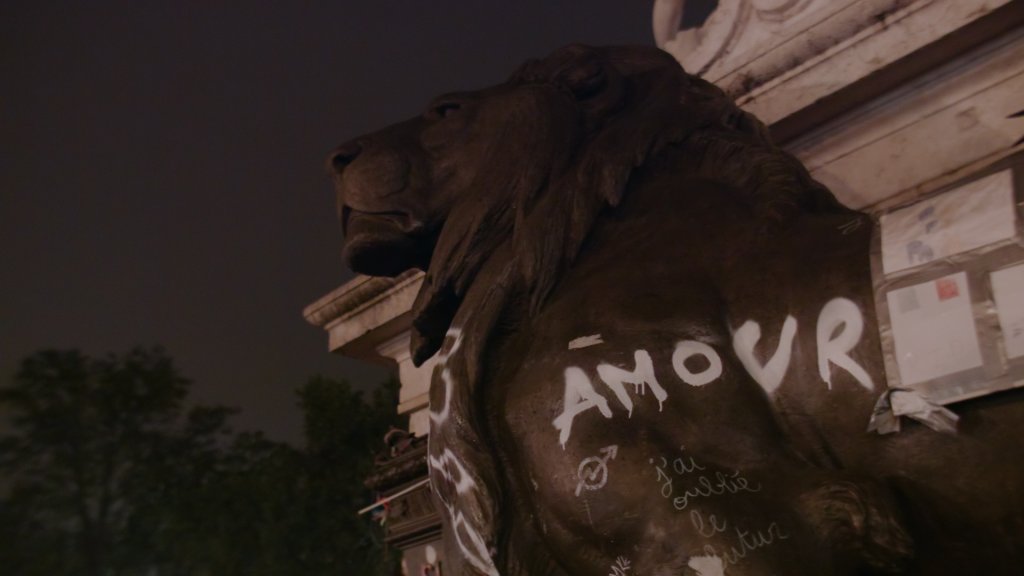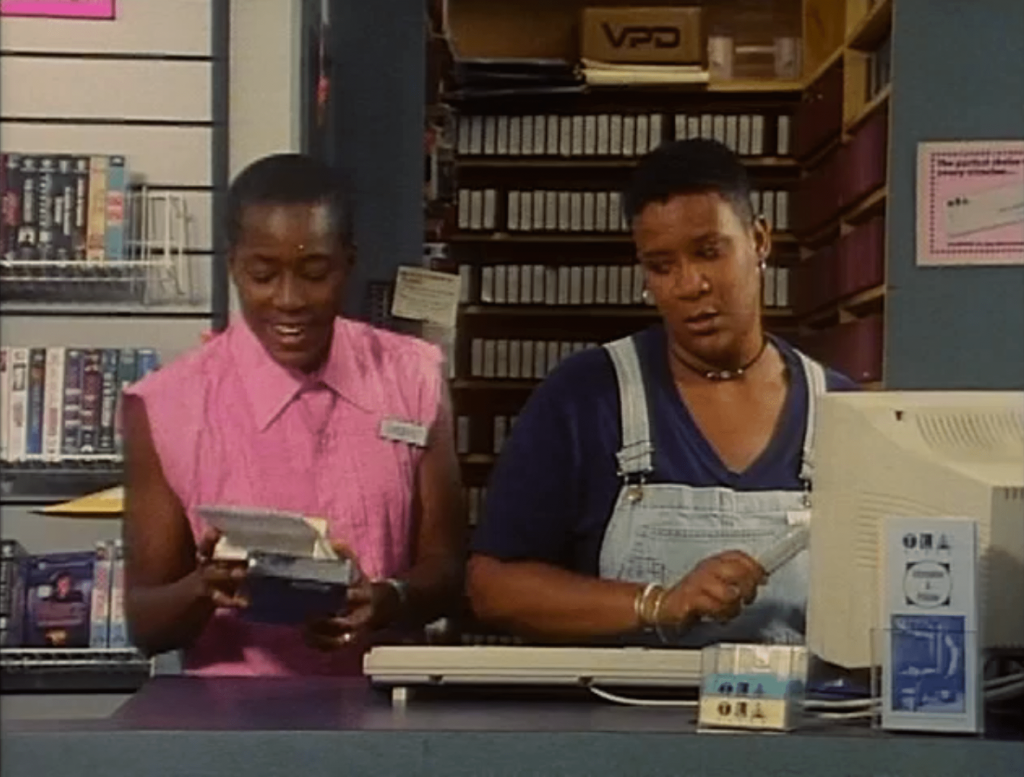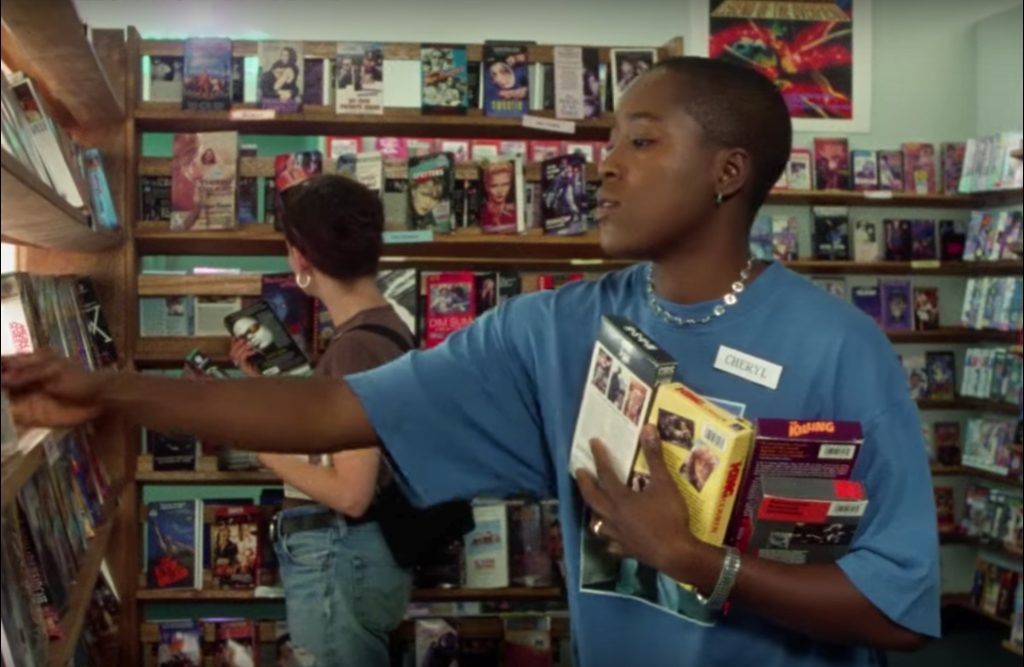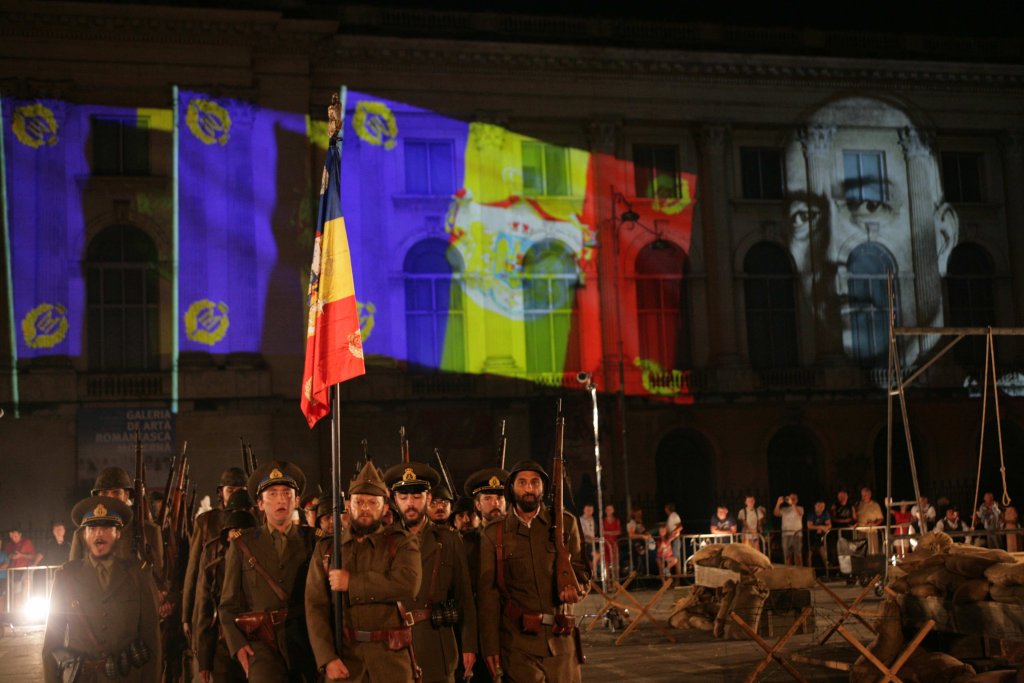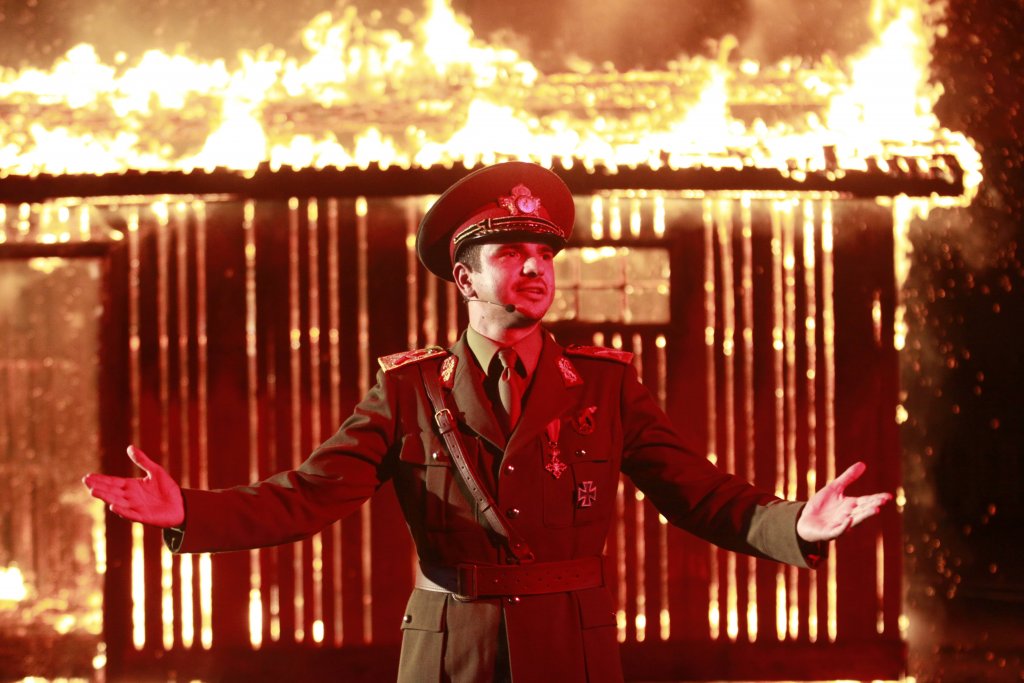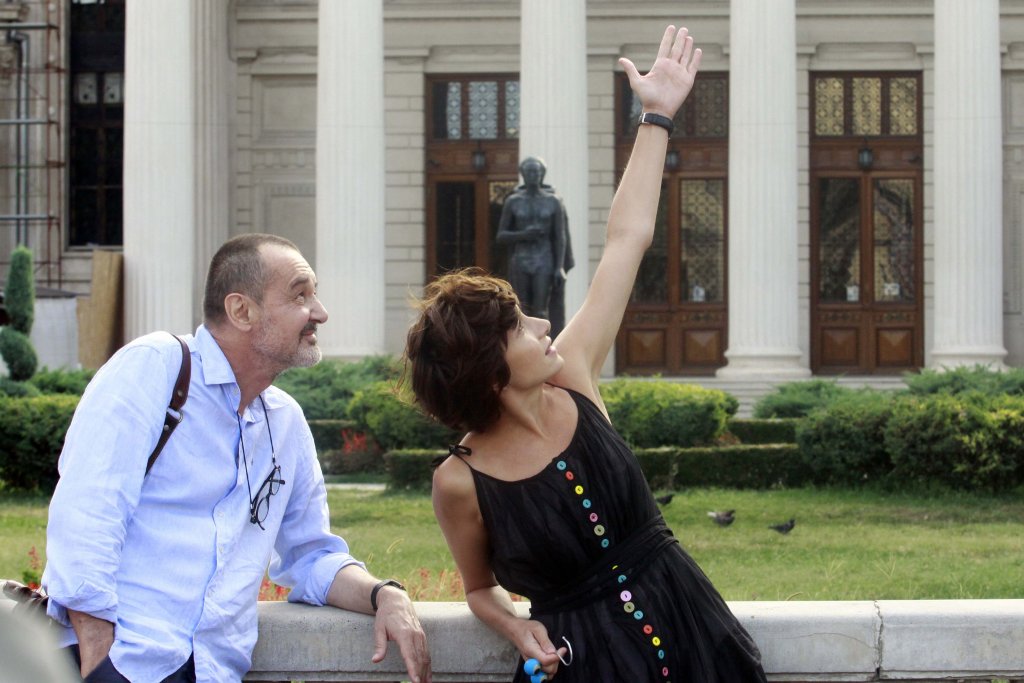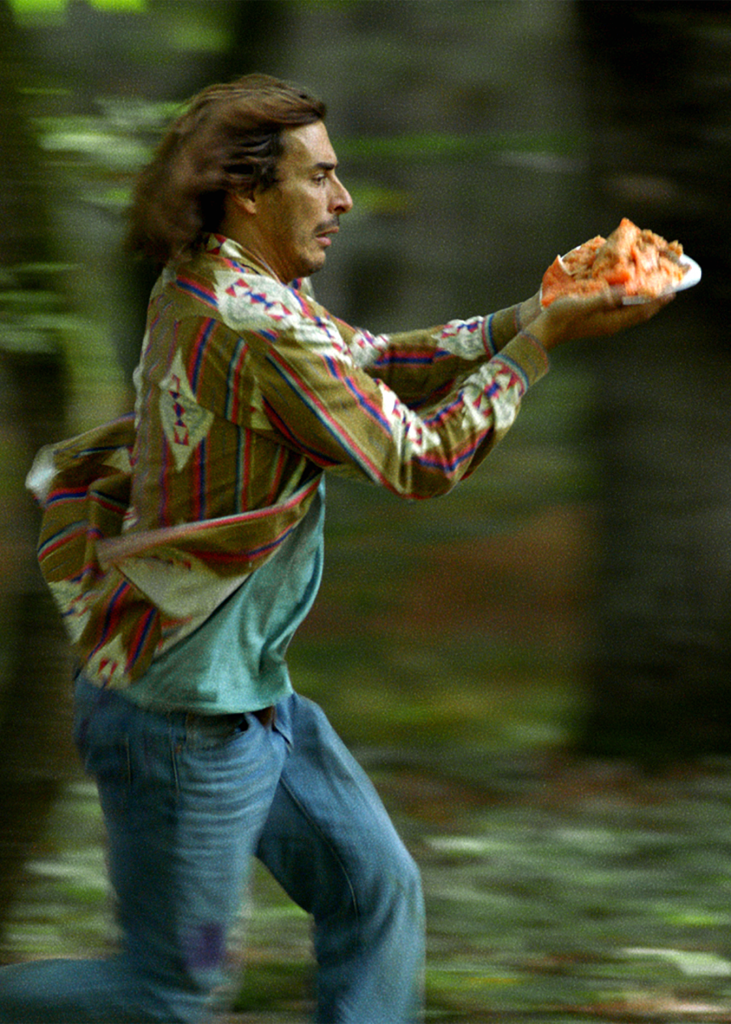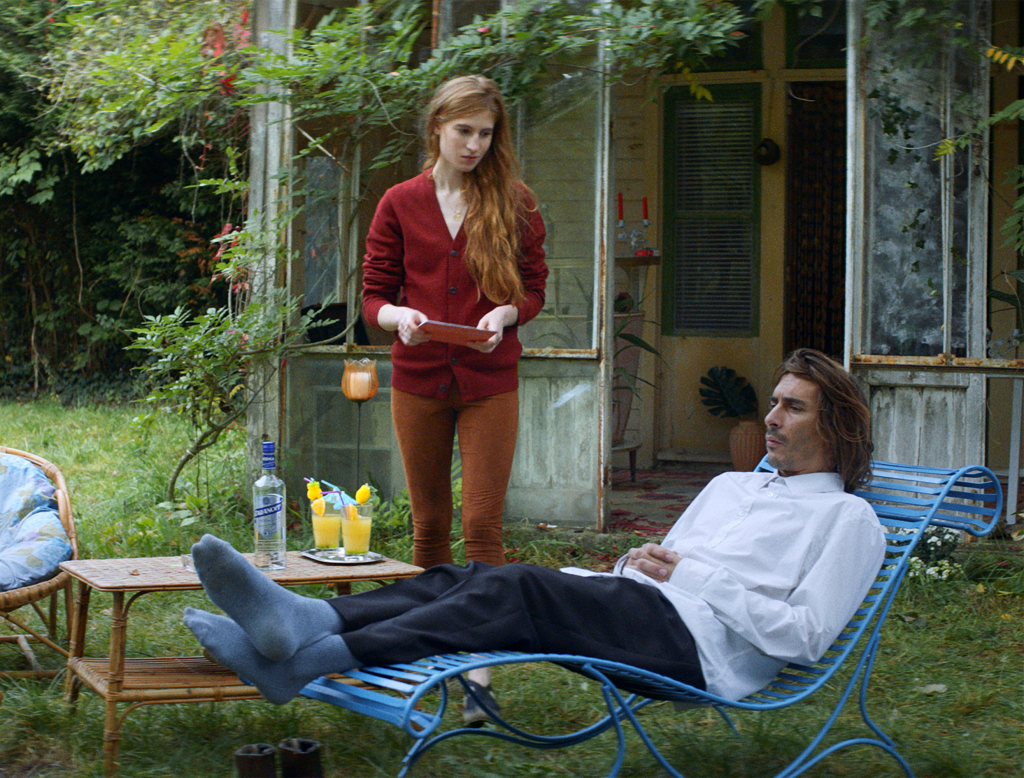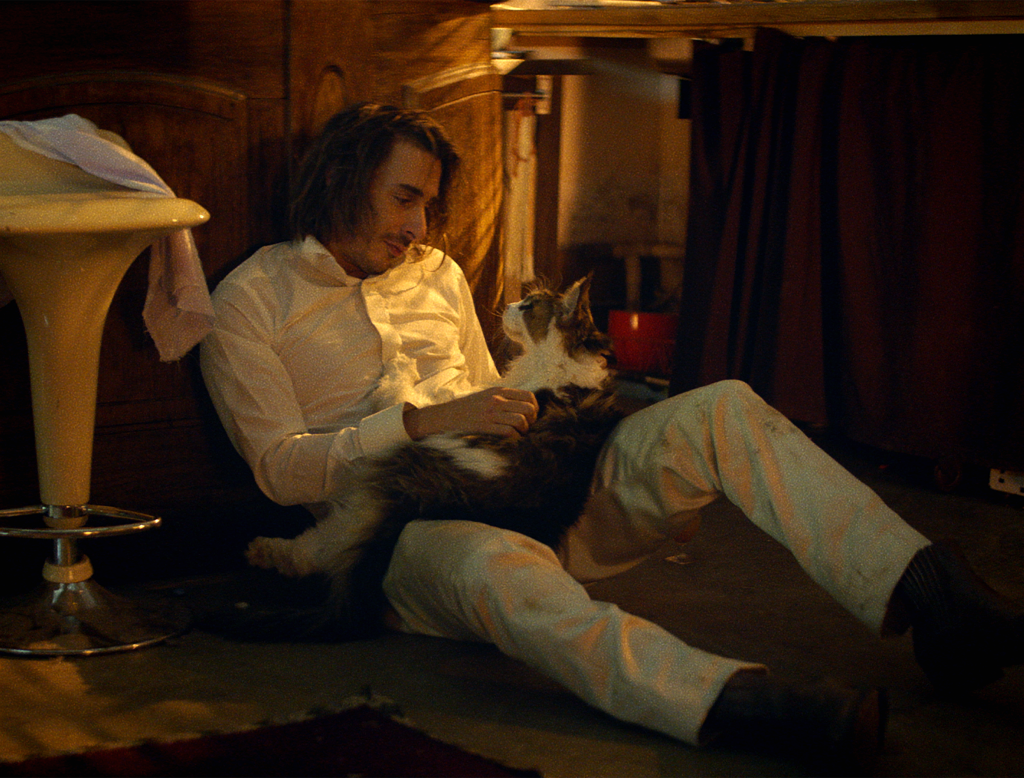F 2018, D: Matthieu Bareyre, Doc, 96′, OV with English subtitles, DCP
Paris between 2015 and 2017. Interviews on the streets and in cafés. Charming adolescent overconfidence blends with the dire feeling of being lost and having no future. The reactions to that are diverse. There is laughing, dancing and provoking the bourgeoisie on the grand boulevards. Others discuss alliances. Solidarity. Reflect their lives under capitalist conditions. Every now and then, we see burning barricades or cops beating constrained people. The streets are marked by riots, sparked off by yet another black adolescent being abused in police custody and another one dead. A time shaped by the movement “Nuit debout”, but also by the attacks on Charlie Hebdo and Bataclan.
Then there is Rose. A young French woman, full of energy and wit, with a sparkle in her eyes. She talks about racial profiling, argues about identity issues and climbs the monument on the republican square. YOUNG AND ALIVE is no journey to the end of the night. Rather, it is a blazing cocktail foreshadowing its fumes, a feverish ride carried and driven by a Vivaldi sonata in D minor. It is the survey of a generation leaping into a new era, if it were not for the old one.
18 April, 10 pm – Schaubühne Lindenfels – € 6,5 (5,5 red.)
Trailer
USA 1996, D: Cheryl Dunye, A: Cheryl Dunye, Guinevere Turner, Valarie Walker, Cheryl Clarke, Sarah Schulman, Camille Paglia, Brian Freeman, 90′, Englisch version, DCP
Philadelphia in the 1990s. Cheryl and Tamara are part of the city’s black lesbian community and earn their money in a video store. Meanwhile, Cheryl tries to get started as a filmmaker and begins shooting a documentary. Having set her mind on making a film about the attractive “Watermelon Woman” – a supporting actress in many flicks from the 1930s and 40s, to be found only under this name in the closing credits – she starts her research. Spheres begin to intertwine increasingly: alongside the mainplot relating to Cheryl’s love life and friendships, pseudo-documental interviews reveal more and more about the so-called “Watermelon Woman“, whose life has some parallels in store with the protagonist’s. Dunye’s film meets fictive documentary with a fictional film atmosphere and creates an amusing and non-conformally enacted political inventory of the multilayered connection of sexuality, class and skin colour.
The fictional character behind “Watermelon Woman“ was specifiically created for the production of the film by Cheryl Dunye and Zoe Leonard, including an accompanying photographic archive of the invented Fae Richards, an Afro-American actress who lived in the early 20th century and was known for her commitment in the civil rights movement. Dunye ascribes her fabrication of a life story to the shortcoming of information in real life: “The Watermelon Woman came from the real lack of any information about the lesbian and film history of African-American women. Since it wasn’t happening, I invented it.” (Cheryl Dunye).
19 April, 8 pm – Schaubühne Lindenfels – € 6,5 (5,5 red.)
On the same day at 7 pm, there will be a lecture by Natascha Frankenberger at Schaubühne Lindenfels dealing with working methods of Dunye’s and Leonard’s project besides other examples and aspects of queer counter-archives and activist visualization of marginalized artists and their ways of living.
Trailer
RO/CZ/F/BG/GER 2018, D: Radu Jude, A: Ioana Iacob, Alex Bogdan, Alexandru Dabija, 139′, OV with English subtitles, DCP
The film’s title are words that have been uttered in the Romanian cabinet in 1941. Words that discoursively initialised the ethnic cleansings led by collaborative prime minister Ion Antonescu. Radu Jude’s film orbits around this sentence, comments on it, traces and alienates it. At the very beginning, actor Ioana Jacob steps into the frame, introduces herself as theatre directress Mariana Marin and slipts into her role. She plans a publicly arranged reenactment that is well-researched and that is to counteract a present, selective historical amnesia by addressing the Romanian involvement in the holocaust.
Emerging from that is not a simple, historic holocaust plot but a multilayered story located in the present time, that by using documentary aestehtics connects a past present with a present past in a metafictional manner. As artistic principles, Brecht and Godard shimmer at the horizon. The film faces its sensitive topic with a script full of wit, straightforward and elegant camera work, and a playful sense of irony without losing track of flawed humanities. “I DO NOT CARE IF WE GO DOWN IN HISTORY AS BARBARIANS” is full of dialectic moments and entertains to the point where it turns uncomfortable.
19 April, 10 pm – Schaubühne Lindenfels – € 6,5 (5,5 red.)
Trailer
Panelists:
Heide Schlüpmann studied philosophy in the 1960s, inter alia in Frankfurt/Main. She is a passionate cineast since 1970. Lecturer for film since 1977, from 1991-2008 professor of film studies at Goethe University Frankfurt/ Main. Co-founder of Kinothek Asta Nielsen e.V., which documents, archives and promotes women’s historical and present film work.
Simon Rothöler is a junior professor of media technology and media philosophy at Ruhr University Bochum and co-founder as well as editor of the journal CARGO Film/ Medien/Kultur. His most recent publication is the book “Das verteilte Bild. Stream – Archiv – Ambiente“.
Gabriele Stötzer is an artist, filmmaker and writer. Besides running a private gallery in Erfurt, she also works as a photographer, performance- and videoartist. Co-founder of “Frauen für Veränderung“ (Women for Change) and coinitiator of the first occupation of a Stasi district administration in December 1989.
Moderated by:
Dennis Vetter is a film critic, independent scholar, curator and festival organizer. As a co-founder and programmer of Berlin Critics’ Week, he keeps visiting festivals internationally, focusing on documentary cinema, Asian cinema, queer cinema and experimental film.
20 April, 6 pm – Schaubühne Lindenfels – Free entrance
FR 2018, R: Maxime Matray, Alexia Walther, A: Thomas Scimeca, Basile Meilleurat, Agathe Bonitzer, 101′, OV/English subtitles, DCP
As unknowingly as we are thrown into BLONDE ANIMALS, as confused protagonist Fabien stumbles through the story and his life. Abruptly, he wakes up in a forest. Picnickers return a borrowed screwdriver to him and invite him to a grill party. He accepts, steals their meticulously marinated salmon and flees into the thick woods, where the fish ends up in a hound’s belly. This charmingly odd opening sequence develops into an eccentric road movie, which is as unpredictable as the actions of protagonist Fabien. Fabien is a former sit com star whose short term memory only operates on alcohol. The film hardly cares about the question of what defines human existence if you subtract its memory. It takes Fabien’s restrictions – additionally to the weakness of memory comes a loss of gustatory taste – as a comical engine to push the plot forward. The storyline consists of sensual and absurdly witty episodes which are occasionally set on the boundaries of good taste. Fabien meets his steady companion Yoni who he often fails to remember. Yoni is said to have indirectly caused his boyfriends death. At least the family of the decapitated suggests that while his funeral is being prepared. Together, Fabien and Yoni try to reach the laid-out one…
20 April, 10pm – UT Connewitz – € 6,5 (5,5 red.)
Trailer

